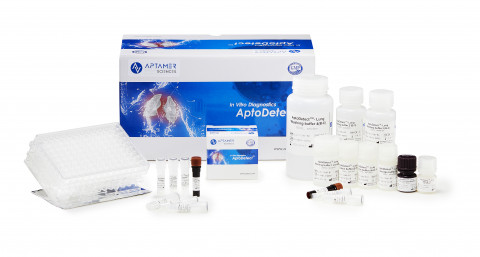Aptamer Sciences said on Friday that it has officially started non-reimbursed testing of AptoDetect-Lung, a blood-based early detection kit for lung cancer, at tertiary hospitals.

Aptamer Sciences has been conducting multi-center prospective clinical trials for health insurance enrollment and securing non-reimbursement codes for the launch of non-reimbursement tests in tertiary hospitals since AptoDetect-Lung was selected as a new medical technology by the Ministry of Health and Welfare last year.
The multicenter prospective trial, which is in the process of being reimbursed, is on track to enroll approximately 3,000 patients with pulmonary nodules detected on chest CT at more than 10 tertiary care hospitals, with the primary objective of validating the predictive value of lung nodule risk in a real-world setting.
Currently, the company has secured non-reimbursement codes for Asan Medical Center and Kyung Hee University Hospital in Seoul and is securing non-reimbursement codes with other tertiary hospitals to expand the product’s use.
In particular, Aptamer Sciences is also focusing on expanding the market to health examination centers, which have great potential and impact based on references from tertiary hospitals.
Based on the results of clinical trials, the company expects that insurance registration in 2025 to further accelerate sales growth.
“Lung cancer, the number one cause of death, is increasing among non-smokers but there is no adequate in vitro diagnostic technology for early diagnosis, said a company official from Aptamer Sciences. “Blood-based multi-indicator diagnostic technology that can solve the problem of high false positive rates of low-dose computer tomography (LDCT) scans is attracting attention.”

